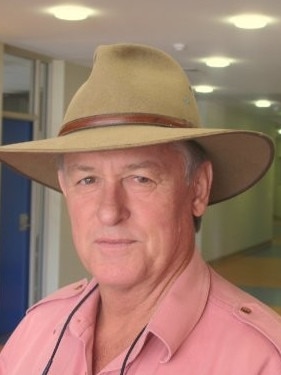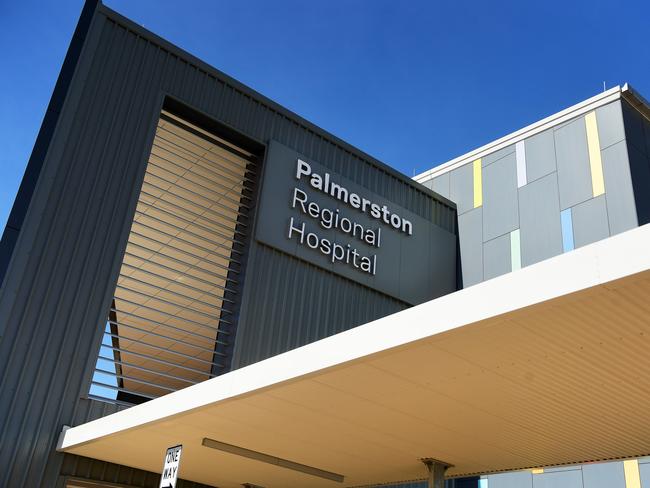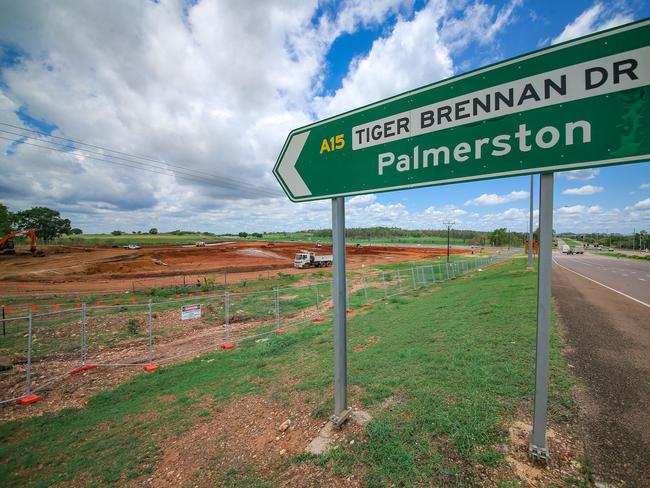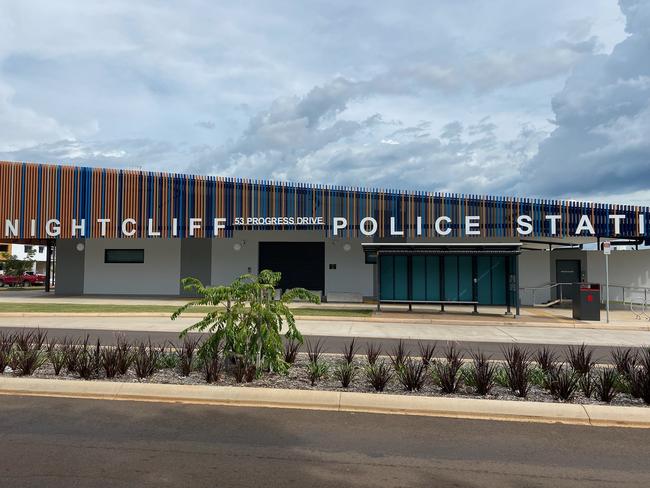CDU Professor Rolf Gerritsen urges NT government to boost funding Indigenous services
A leading academic says remote Indigenous residents across the Territory are denied services because of NT governments’ priorities.
Northern Territory
Don't miss out on the headlines from Northern Territory. Followed categories will be added to My News.
A former senior NT bureaucrat and CDU academic says remote Aboriginal residents are denied services because priority is given to high-profile white elephant projects in the Top End.
Professor Rolf Gerritsen, CDU’s Central Australia research leader and the former director of social and economic policy with the department of chief minister, said location and lobbying were key to service delivery in the Territory.
“It’s what political scientists call the theory of access,” Prof Gerritsen said.
“People who have best access to the system get the best results out of that system.”

Prof Gerritsen pointed to a number of non-essential NT infrastructure projects that received priority ahead of addressing areas of actual disadvantage in remote communities.
His list included Top End fishing infrastructure, the Palmerston Hospital, the new Berrimah overpass and the Nightcliff police station, which many believe is a monument to wasted government spending.
Originally built as a 24-hour police operation for 120 staff, less than 30 officers and non-police personnel work out of the facility on the old John Stokes Square site in Nightcliff.
Senior police panned the commitment when it was first raised by the CLP in the lead-up to the 2012 NT election, citing its proximity to the Casuarina police station and greater need for new police infrastructure in Karama.
The CLP broke its promise to build the station during its one-term government but local Labor MLA Natasha Fyles picked up on the commitment, and the new station was eventually opened a year late in a low-key ceremony in early 2022.
As well as chronic under-usage, the NT News also revealed last year the supposed 24-hour station had, on at least one occasion, shut its doors for business at 3.40pm on a week day.

A CLP government ploughed ahead with construction of a new $200m hospital in Palmerston despite objections from its own side of politics that it wasn’t required.
Former health minister David Tollner took an alternative proposal to cabinet that would have had the Palmerston hospital plan scrapped and Royal Darwin Hospital replaced by a new general hospital located at a more Top End-central location in Berrimah.
That plan never saw the light of day and now hundreds of patients each year are transferred by St John Ambulance to RDH because of lack of services.
Prof Gerritsen said the $170m Berrimah overpass and Garramilla Bvd link off Tiger Brennan Dr were examples of Top End priorities receiving action where shortcomings in remote communities are ignored.
“These are all perfect examples of what I say is political pressure being delivered at a local level,” he said.
“If you are shopping at Casuarina on Saturday you will see your local politician, but if you are shopping in Yuendumu, you won’t.
“Darwin has dual-carriage boat ramps with flood lights which is the benefit of living there.
“About 10-12 per cent of the Territory’s electorates are in the northern suburbs but with a bunch of small electorates of between 4000 or 5000 voters a dozen votes can shift an election, so politicians are very responsive to those voters.

“Politicians and public servants are all responsive to the public but in Darwin, they are the public, so effectively the NT has a public service government.”
He said a resident in Yuendumu lacked the same access to politicians and response times were slower.
“Residents will come into Alice Springs to be with family and spend time in air-conditioning at shopping centres because it takes months to have the air-conditioning fixed at Yuendumu,” he said.
Prof Gerritsen, who worked in the department of chief minister during Clare Martin’s tenure, blew the lid on NT government misspending commonwealth resources after funding intended for Indigenous communities was used on the Waterfront development project.

His criticisms prompted a Senate inquiry, which split down party lines, and a furious reaction from then NT treasurer Syd Stirling who provided Prof Gerritsen with a colourful character assessment when they met by chance at Sydney Airport.
Mr Stirling then commissioned an NT government report to show where commonwealth money was being spent in the Territory, but significant areas of need in remote Aboriginal communities remained unmet.
Prof Gerritsen said multi-member electorates could put an end to the overspend-underspend cycle.
“That would free politicians of that kind of political pressure in their electorates,” he said.
Chief Minister Natasha Fyles denied the government built white elephants.
“Every economic project the Territory Labor government has undertaken has been done with purpose, with 60 per cent of our infrastructure budget being spent in remote and regional parts of the Territory,” she said.
“A strong economy allows us to invest and address areas of disadvantage.
“The Territory Labor government has made unprecedented investment in remote housing. We are delivering a $2.1bn remote housing program and since 2016 have built and upgraded around 3530 homes across all remote housing programs, including works underway.
“We are spending $1.4bn on sealing remote roads so we can have more investment in the bush and around the Territory.
“We have also established more Child and Family Centres across the Territory, along with 17 Families as First Teachers programs. We have brought renal clinics on country so people can receive treatment at home.”





